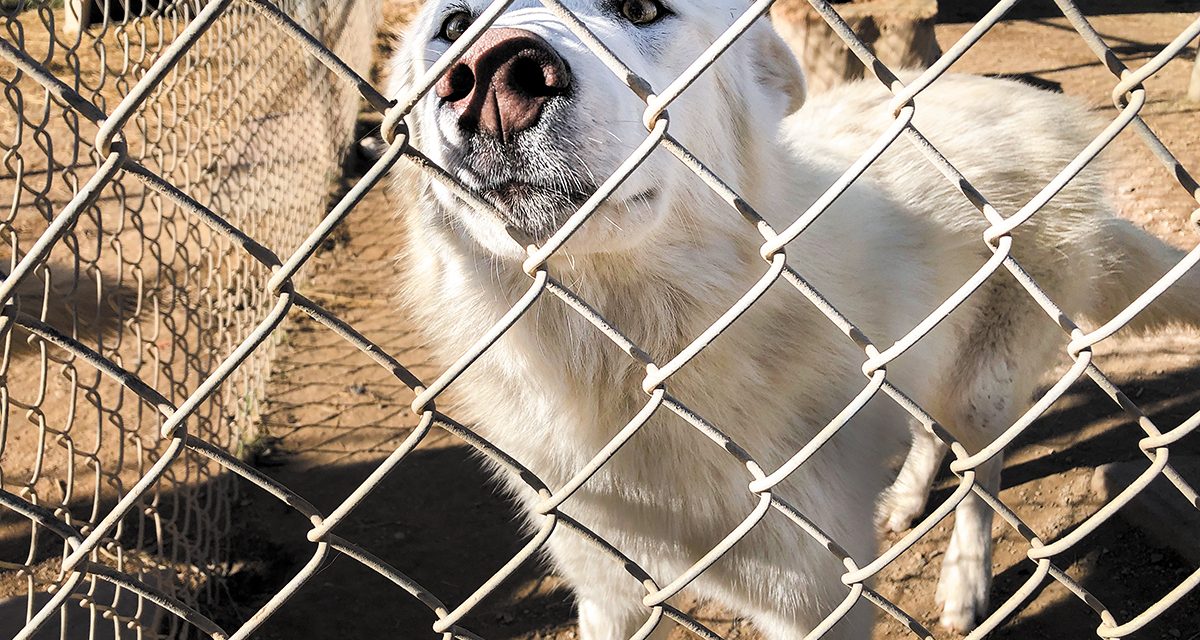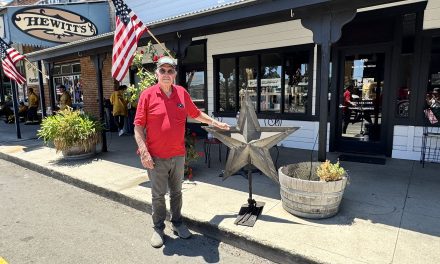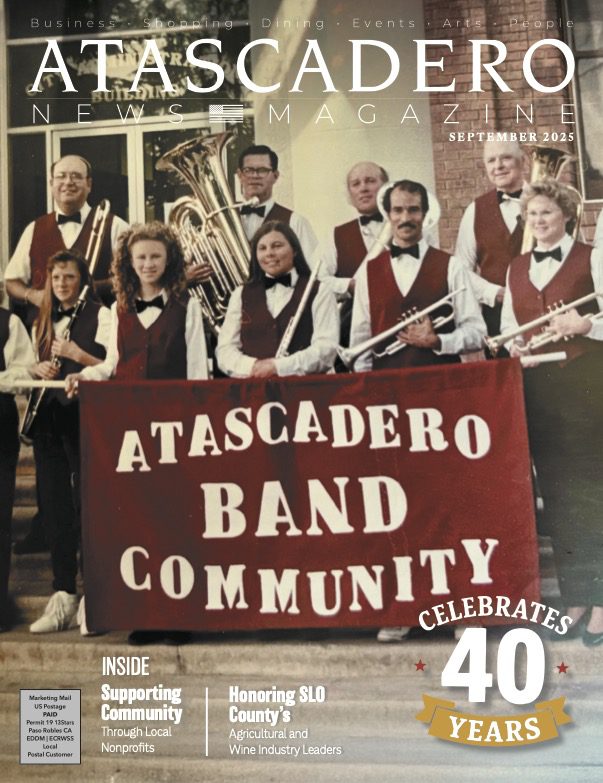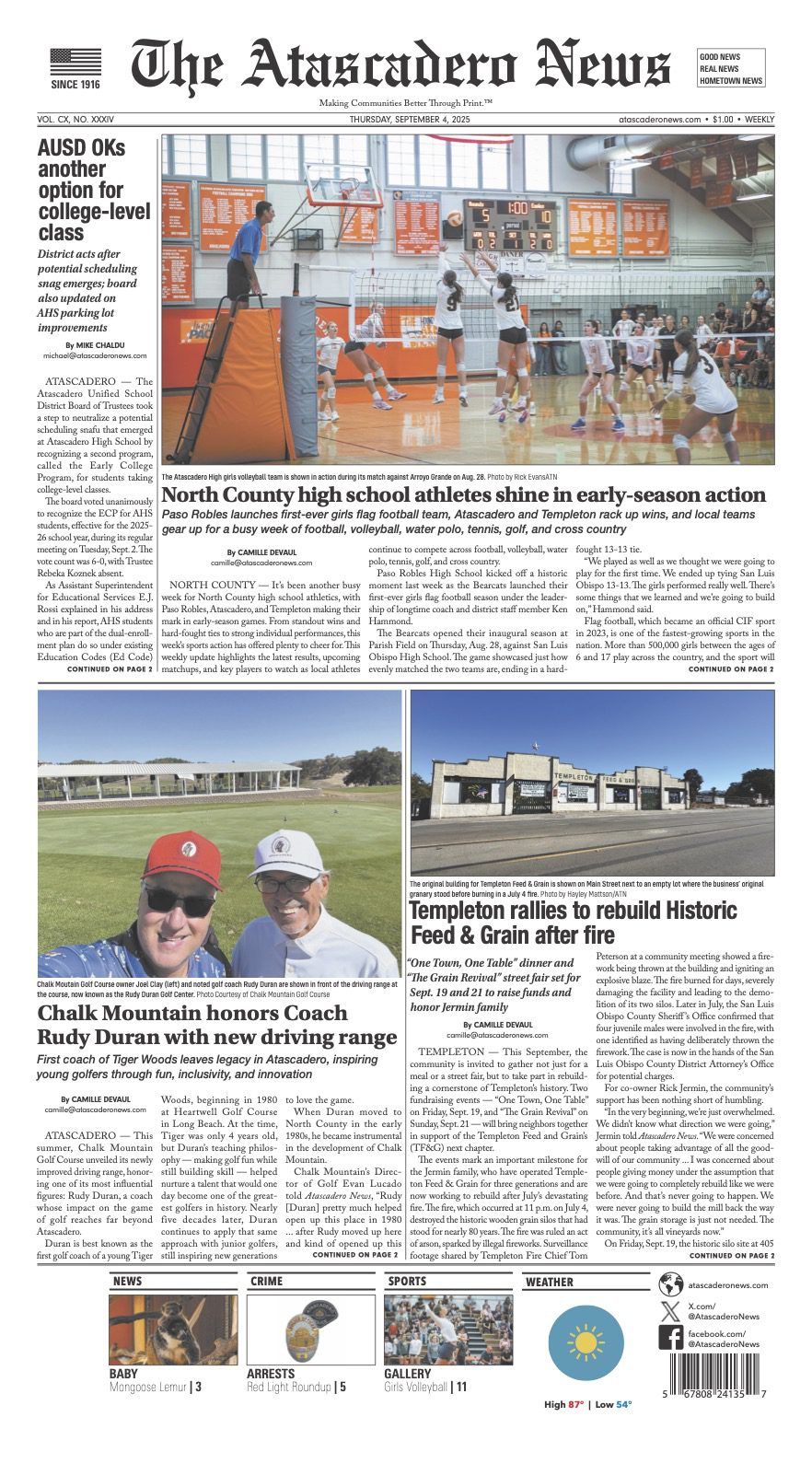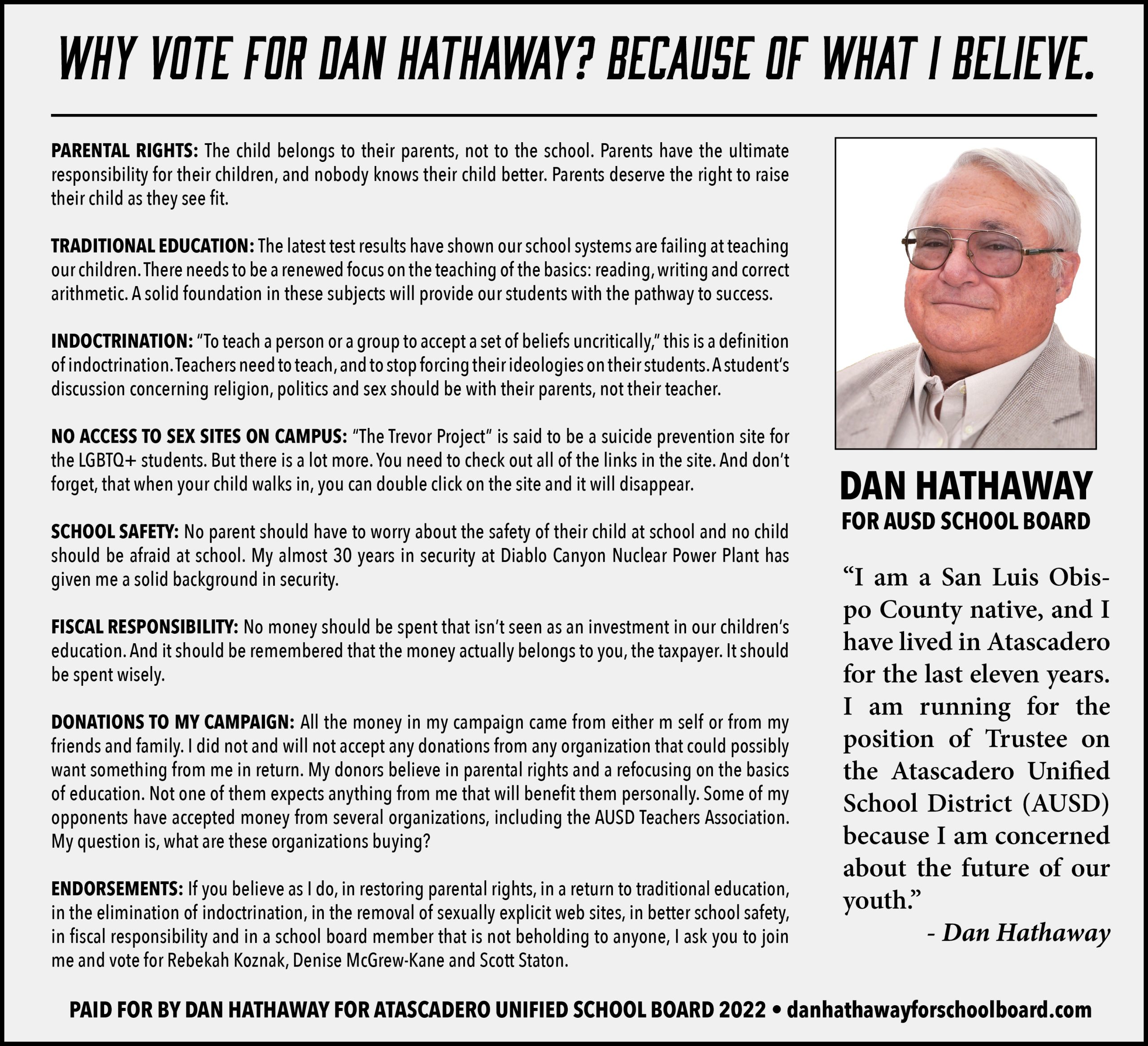NORTH COUNTY —The Wolf Hybrid Adoption Rescue (WHAR) facility located on Adobe Road northwest of the Paso Robles Municipal Airport has four wolf-dog hybrid puppies looking to be adopted. Though describing them as puppies may be a misnomer considering at 7-months-old the animals are already as big as a medium-sized dog. Currently, the facility houses 16 wolves and wolf-dog hybrids.
“We’ve got five back here that need to be adopted,” said Kristi Krutsinger, CEO and co-founder of the nonprofit. “We have one adult and four young one-pups. We have purposefully kept them so that we can have them trained and really used to people, socialized, microchipped, spayed/neutered — the whole deal.”
With the popularity of shows like “Game of Thrones,” where many of the main characters had enormous dire wolves as pets, the public interest in owning a wolf has grown.
“Hollywood has definitely made the wolf very comfy,” said Kristi’s daughter, Melaine Krutsinger, who is a wolf trainer.
However, people soon discover that caring for a wolf, even a hybrid, is a lot more challenging than they anticipated. It is common for people to become overwhelmed once the animal reaches adolescence when aggressive behavior can come to the forefront of their personality. Melaine said the facility has seen this scenario play out time and again over the years.
Kristi said that many people do not understand the behavioral traits of a wolf compared to a dog and make mistakes with the animal that can inhibit the animal’s development and social skills. She said that hybrids are “hard animals to keep,” especially with the ones that are mostly wolf. Kristi said it takes a specially trained person to work with wolves and not merely a dog trainer.
“You only have that small opportunity to get into their world and get into their psyche really strong as they get older that wolf wildness tends to dominate their behavior,” Kristi said.
As Kurtsinger puts it, people will want to do “doggy things” with the canines and not “wolfy things.” Therefore they have to train the animal in ways that encourage or enhance the dog personality in the animal so it can interact in a social environment or ride in a car without destroying it.
Kristi said that not everyone is suited to adopting a wolf and she screens them through an intricate process. There are specific criteria that potential adopters must meet, such as the amount of land available to the animal and stability of the adopter’s life. If someone works two jobs and lives in a rented apartment, they are not in a position to take on the demanding role of raising a wolf.
Once the interested party passes the initial screening test, Kristi said they are brought to the facility for at least 5 hours of training with the animal. She said that she and the trainers carefully watch the interactions between the adoptee and the adopter.
“Just because someone wants an animal doesn’t mean that the animal wants them,” Kristi said, “and we’re very conscious about that out here. We don’t want a match on the human side and not a match on the canine side.”
The rescue has been operating since 1997, receiving nonprofit status in 2000. The facility takes in animals that have been abused, neglected, abandoned, or become too much for their owners to handle. Kristi said the team works with an animal for a minimum of three months to understand its personality and limitations.
WHAR accepts volunteers who will receive a minimum of 20 hours of training and continued training throughout their duration working at the rescue. Kristi informs volunteers during orientation that they can at least expect to get bit or nipped since they will be dealing with wild or semi-wild animals. In November, a volunteer received bites, and in 2018 Kristi lost a portion of her leg from an attack. Despite the injury, Kristi’s love for the animals keeps her working to rehabilitate and find them homes.
For more information on tours and services WHAR Wolf Rescue provides, call 805-610-6109 or visit their Facebook page at facebook.com/wharwolforg.

